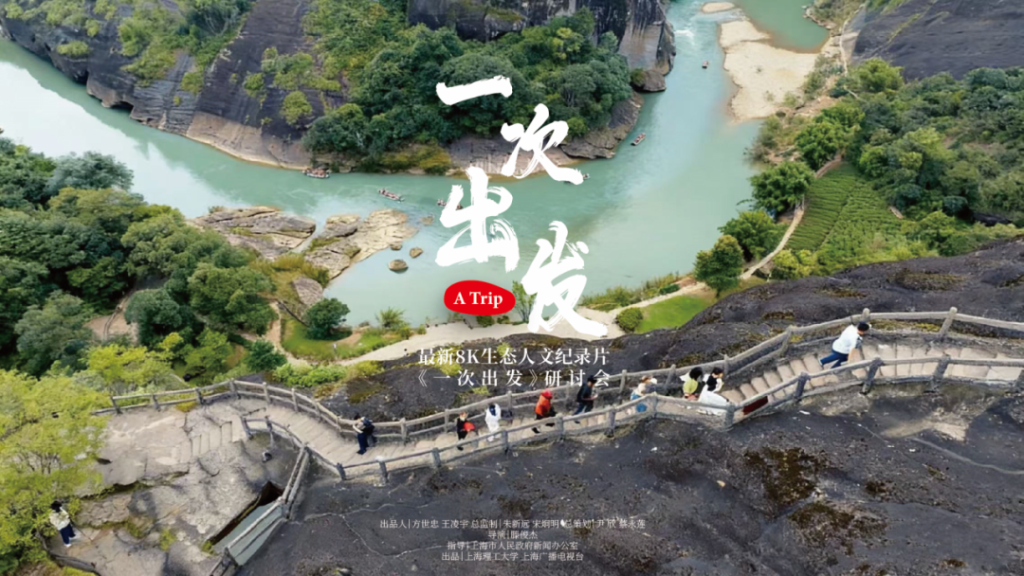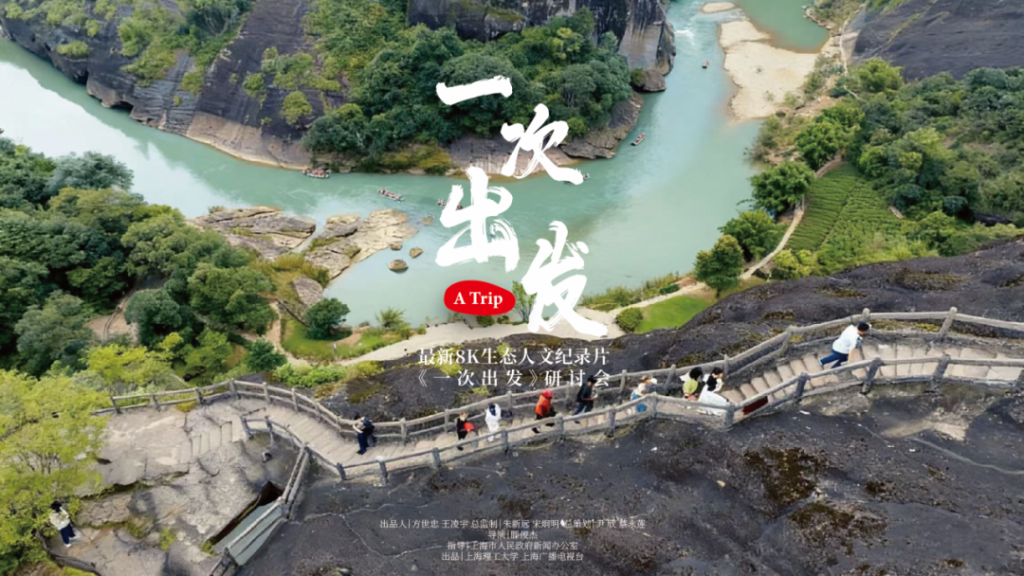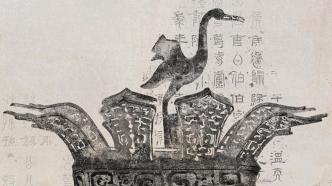
"'Why China?' is an integration of decades of archaeological findings and the best way to transform them," said Ma Xiaolin, director of the Henan Museum, at the "Why China?' Appreciation Dialogue and the Launch Ceremony of "Cultural China" at the 29th Shanghai TV Festival Magnolia TV Forum on June 26. He believed that "Why China?' can allow archaeologists, audiences, especially young people, to better feel this period of history, and that the film gives an outline of what China is, including geographical China and China in terms of time period.
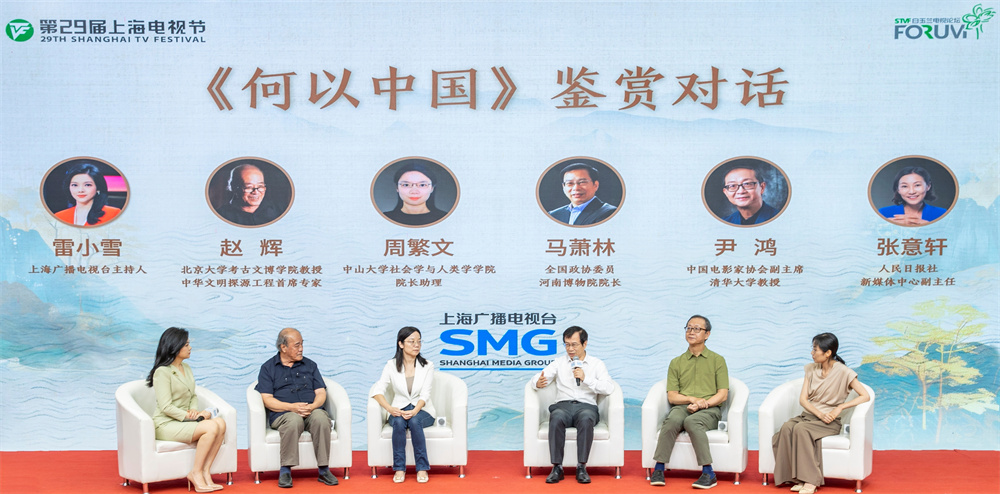
"Why China" appreciation dialogue scene
In December 2023, the large-scale documentary "Why China", produced by Shanghai Radio and Television Station and guided by the State Administration of Cultural Heritage and the Publicity Department of the Shanghai Municipal Committee of the Communist Party of China, was first broadcast on Dragon TV. "Why China" interprets "archaeology and history" with innovative visual expression, and explores the origin of "Why China" by tracing the 5,000-year history of the development of Chinese civilization.
The documentary consists of 8 episodes: "Qin and Han", "Cradle", "Stars", "Ancient Country", "Choose the Middle", "Shang Dynasty", "Homeland", and "World". It starts with the Qin and Han dynasties moving towards integration, and then traces back to the turn of the Old Stone Age and the New Stone Age, witnessing the ancestors of the Chinese land moving towards agricultural settlement, forming families and societies, establishing early beliefs and cultural aesthetics, starting exchanges between the five lakes and four seas, forming regional ancient countries and early civilizations, opening the dynasty era of Xia, Shang and Zhou, and the great process of the Qin and Han dynasties establishing a unified multi-ethnic country. After the broadcast, the film received unanimous praise from both inside and outside the industry and was praised as "a milestone achievement in the field of all-media cultural communication."
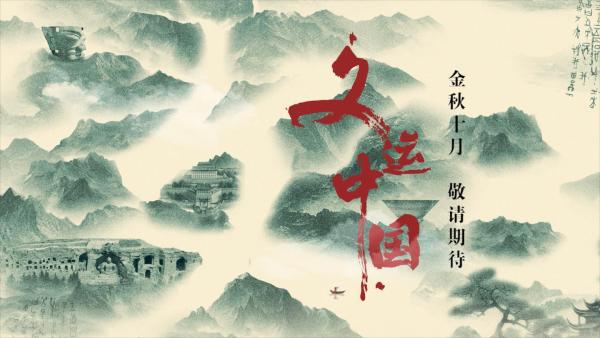
"Why China" not only records the first-hand scene of archaeological excavations with real images, but also uses 5G+AR, ultra-high-definition 8K and other shooting methods and film techniques to reproduce important scenes in ancient China and create an "accurate portrait" of Chinese civilization.
Chief Director Gan Chao recalled that the creation of the documentary lasted for three years. The creative team of more than a thousand people visited more than 230 archaeological sites, museums and other sites, traveled more than 40,000 kilometers, sorted out more than 3 million words of academic materials, and wrote 400,000 words of scripts. It not only explored the history of China, but also witnessed the reality of China. Thinking about the connection from history to reality is the connotation of "Why China".
Why China tells the story of millions of years of human history, 10,000 years of cultural history and more than 5,000 years of civilization history on the Chinese land. However, at least half of the 8 episodes are about prehistoric periods for which there is no historical document record. Whether it is the beginning of agricultural settled society ten thousand years ago, or the long-distance cultural exchanges seen in the spread of painted pottery and jade five or six thousand years ago, or the magnificent ancient country era four or five thousand years ago, or even the initial changes in the dynasty era, Gan Chao believes that they all need to be opened up through archaeological exploration and discovery as well as archaeological vision and methods.
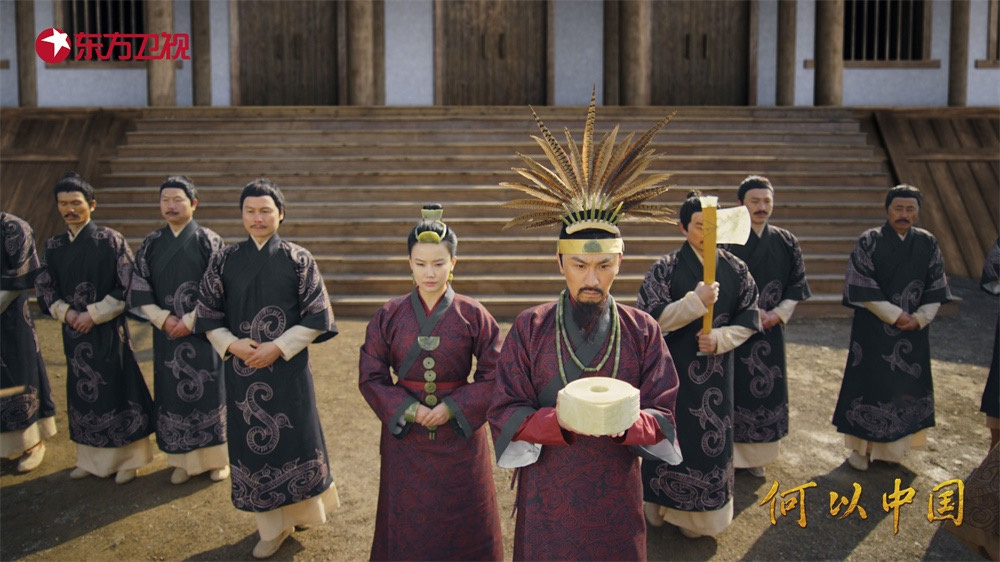
Stills from Why China
How to let the audience feel the wind of history on the spot? The method of "archaeology through objects" gave great inspiration to the creative team.
Gan Chao said: "On the one hand, archaeological discoveries present important figures and events in history, allowing people today to understand the connotations of national governance, social systems, urban planning and construction, and advanced manufacturing techniques in different historical periods. But on the other hand, archaeology also shows us a vast and vivid grassroots society that has never been recorded in historical documents."
Innovative film and television writing and the results of Chinese archaeological excavations and research are the basis of authenticity. The filming team also needs to create a sense of reality in historical scenes to make the audience feel involved and enter the ancient society restored by archaeologists and documentary filmmakers.
It is worth mentioning that in terms of the construction of historical images, Gan Chao emphasized: "Why China" sets a goal that belongs to the discipline of archaeology, that is, to restore ancient society. More than 80% of the maps used in our film are created for the first time, and are repeatedly checked and discussed by archaeologists, historical geographers and map editors. We counted it ourselves and found that the average number of modifications for each map reached 32 times, so it not only became a part of the video, but also had academic value. At the same time, under the guidance of hundreds of archaeologists, we used the ruins and cultural relics as references and combined with relevant historical materials to carry out a large number of complex restoration experiments, including house construction, ritual restoration, bronze smelting, oracle bone forging, etc. In total, 220 narrative scenes, 2,268 sets of costumes, 1,500 accessories, and more than 3,600 props were restored in the film, so that every scene has a source."
Gan Chao believes that "the biggest common point between documentary filmmakers and archaeologists is the search for truth. By finding the truth of cultural relics, exploring the truth of ancient society, and understanding the truth of the origin and development of civilization, the audience can see a more tangible and credible picture of civilization. They will have a deeper understanding of history, more confidence and self-confidence in our Chinese culture, and more warmth for our ancestors who have made China what it is today for thousands of generations. This may be the consensus of the times that will be gathered through works like "Why China" one after another."
Talking about his feelings after making the film, Gan Chao said: "The issues facing our world today, such as the relationship between man and nature, the relationship between man and others, the relationship between man and the world, and the relationship between man and himself, have all been encountered by our ancestors, who have thought about and chosen to create their own paths. These paths have come together to become the path that we Chinese are taking today."
He recalled what Yan Wenming said when he visited the Chinese archaeology master for the third time on July 13, 2023. At that time, the main shooting of "Why China" had been completed, and Yan Wenming served as the project's chief academic consultant. Mr. Yan, who was 91 years old at the time, looked thin, but his words were still powerful.
"He said that Chinese civilization is diverse and integrated, and it continues to develop. No external force can overthrow Chinese civilization. We Chinese people know our own history and should have confidence in future development."
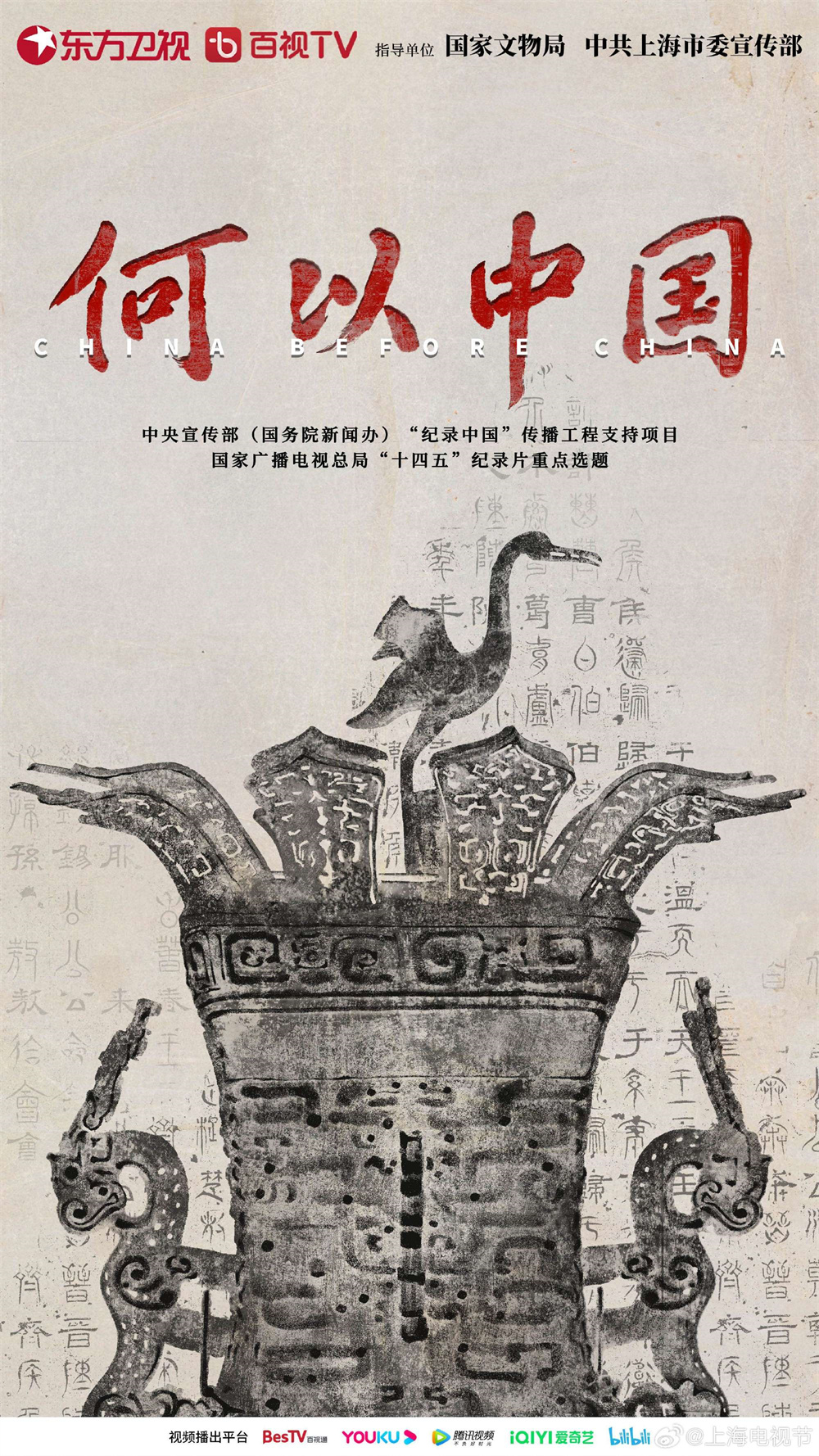
Poster of Why China
Breaking the "word-of-mouth record" of cultural communication
Since its broadcast on Dragon TV and BesTV and other online platforms on December 9, 2023, Why China has achieved remarkable results, breaking the "data scale" of cultural communication in one fell swoop, creating a billion-level communication, with cumulative exposure to more than 1 billion people on domestic large-screen terminals, and the total amount of communication on all terminals of the entire network exceeding 6 billion times; reaching 150 million overseas TV users in 199 countries and regions. At the same time, the film also broke the "reputation record" of cultural communication, and received high scores and high responses on platforms such as Tencent Video, Youku, and Douban. From the archaeological community to authoritative media, they all gave extremely high evaluations, praising the film for its "depth and credibility", "setting up a model for all-media communication", and "being an excellent textbook to prove the diversity and unity of Chinese civilization and its sustainable development, and to show the world China's cultural confidence."
At the event, experts, scholars and media representatives also spoke highly of "Why China?"
Zhao Hui, professor at the School of Archaeology and Museology of Peking University and chief expert of the Chinese Civilization Origins Project, said that "Why China" presents tens of thousands of years of turbulent history in a very concise and clear form, which is the social and academic significance of this documentary.
Zhou Fanwen, assistant dean of the School of Sociology and Anthropology at Sun Yat-sen University and co-chief writer of "Why China", believes that "Why China" contains both historical processes and specific and small stories; it includes both kings, generals and ministers, as well as various characters covering all social classes, showing the formation process of Chinese civilization in which everyone participates.
Tsinghua University professor Yin Hong believes that "Why China" combines macro culture and micro destiny, allowing micro expressions behind the grand cultural theme. Zhang Yixuan, deputy director of the New Media Center of People's Daily, gave his own answer to the question "How can good works retain more young audiences?"
At present, the film has been selected as one of the top ten hot events in the cultural and museum industry in 2023. 18 museums across the country have become the first batch of institutions to collect "Why China", and have started the production of the international version, which will tell the story of Chinese civilization to the international community in a multi-language version.
On the day of the event, preparations for the large-scale exploratory documentary "Literary China", jointly directed by the State Administration of Radio and Television and the Propaganda Department of the Shanghai Municipal Party Committee, and filmed and produced by Shanghai Radio and Television Station and Discovery Channel, were officially launched.
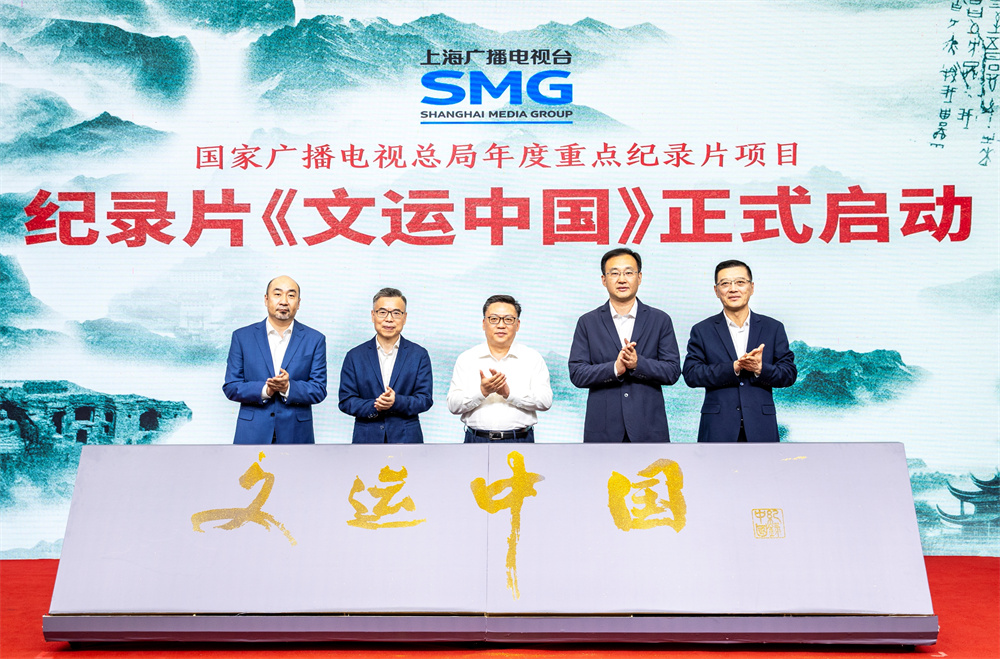
Documentary "Literary China" officially launched
According to reporters, a number of documentaries launched by Shanghai Radio and Television Station that praise the vigorous vitality of mountains and rivers and present oriental wisdom will also be released to the audience one after another.
"Our National Parks" demonstrates China's commitment to global ecological civilization construction, as well as China's solutions and wisdom in building a community of life on Earth.
"Dongtan, Home of Birds" comprehensively demonstrates the important ecological functions and values of Shanghai Chongming Dongtan, and vividly presents Shanghai's unremitting efforts to implement Xi Jinping's ecological civilization thought.
"Dreaming of the Nujiang River" records the natural geography and cultural customs of the beautiful secret place deep in Yunnan, and at the same time shows Shanghai's all-round support for the construction of beautiful villages in Nujiang.
"Literary China" allows two foreign hosts to travel thousands of miles across China and experience the preservation and innovation of Chinese cultural heritage from a first-person perspective, as well as the exchange and mutual learning between Chinese and foreign civilizations.
The third season of "Forever Walking: Encountering China" will continue the accompanying recording style and put a perfect end to Paul Salopeco's journey of walking across China.
"Dialogue with ASEAN" shows the exchanges between China and ASEAN over the past 30 years from five major areas: society, economy, science and technology, ecology, and cultural exchanges.
